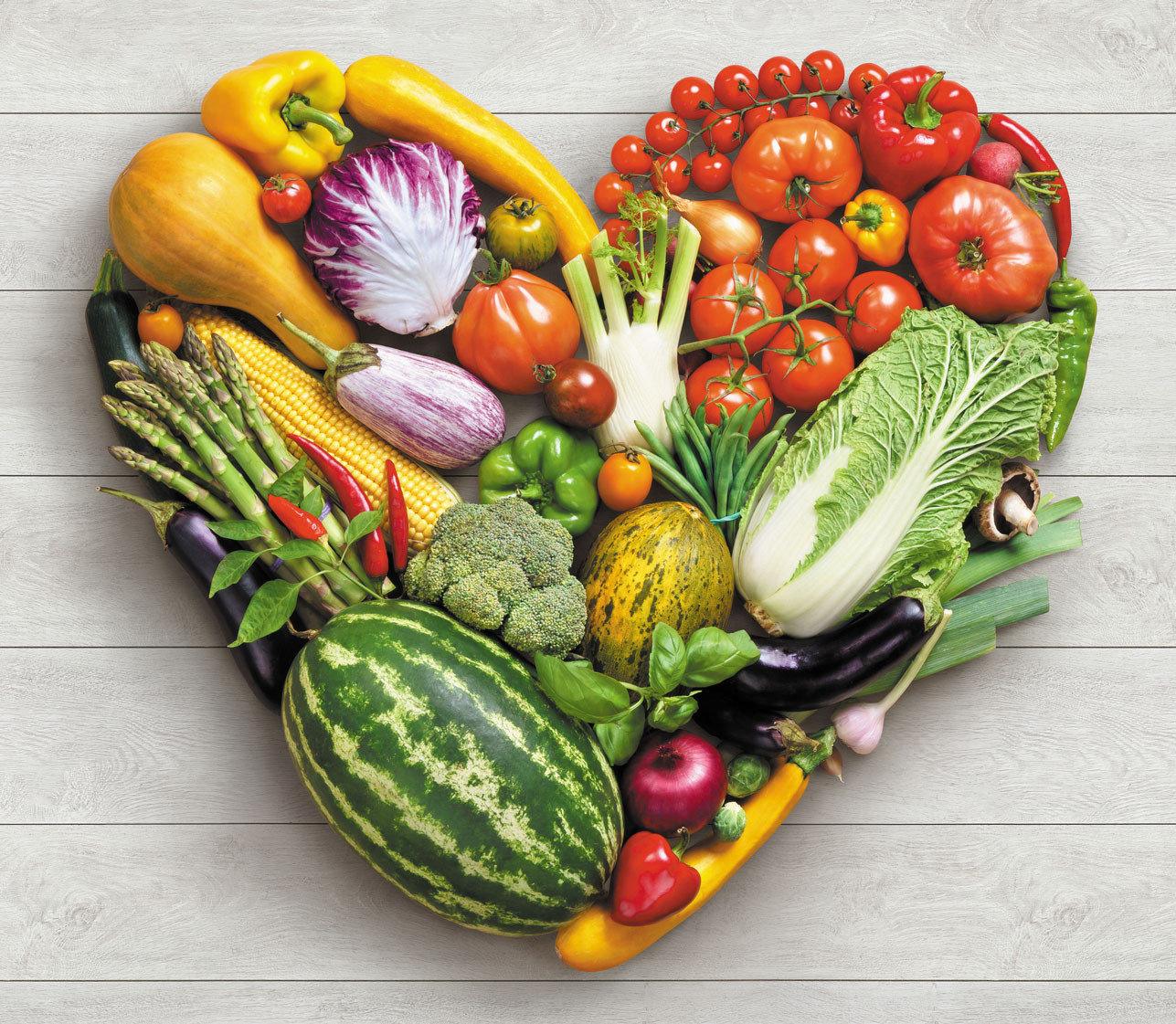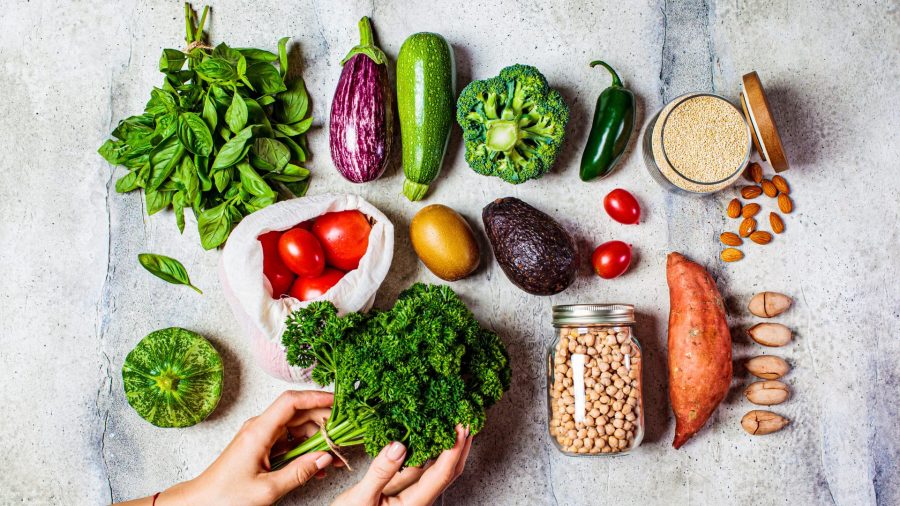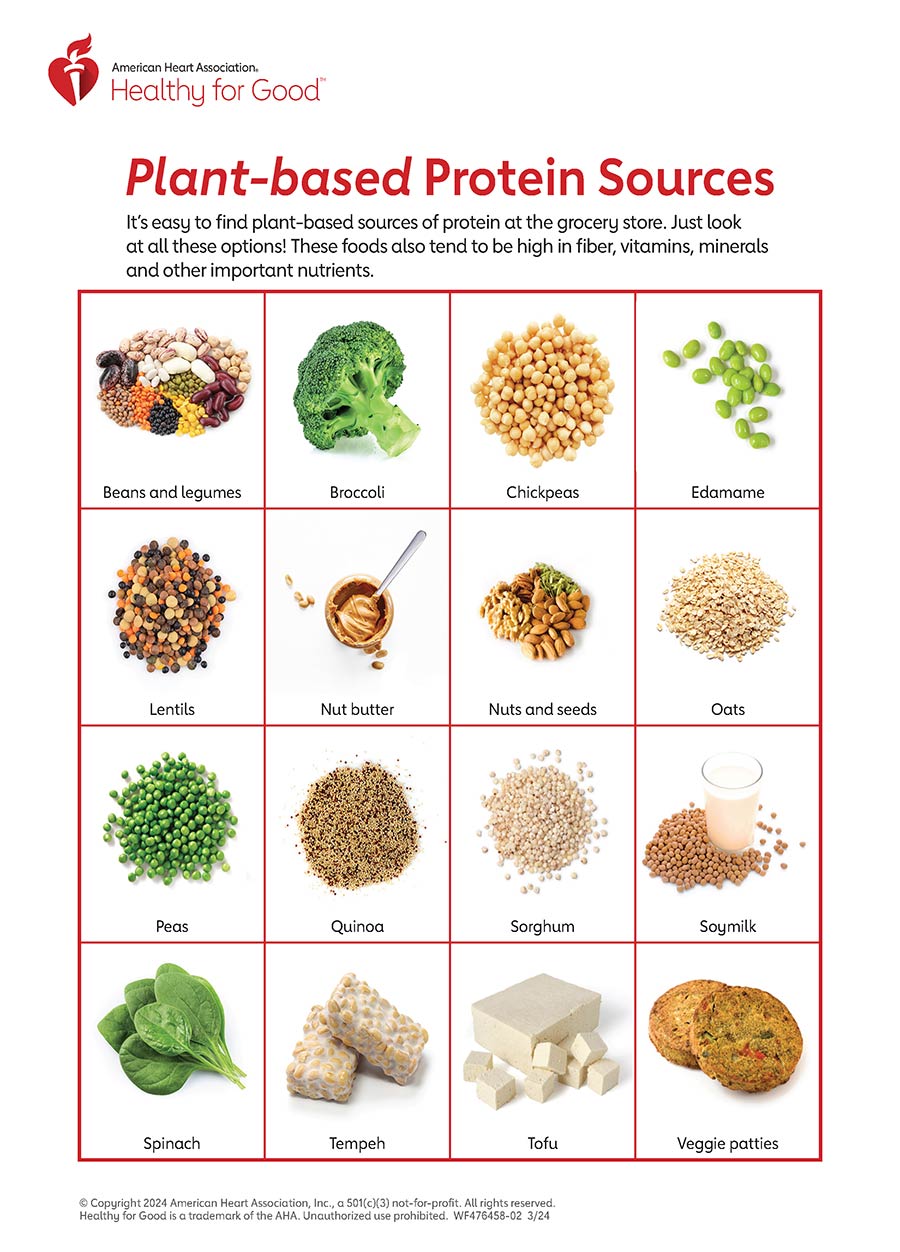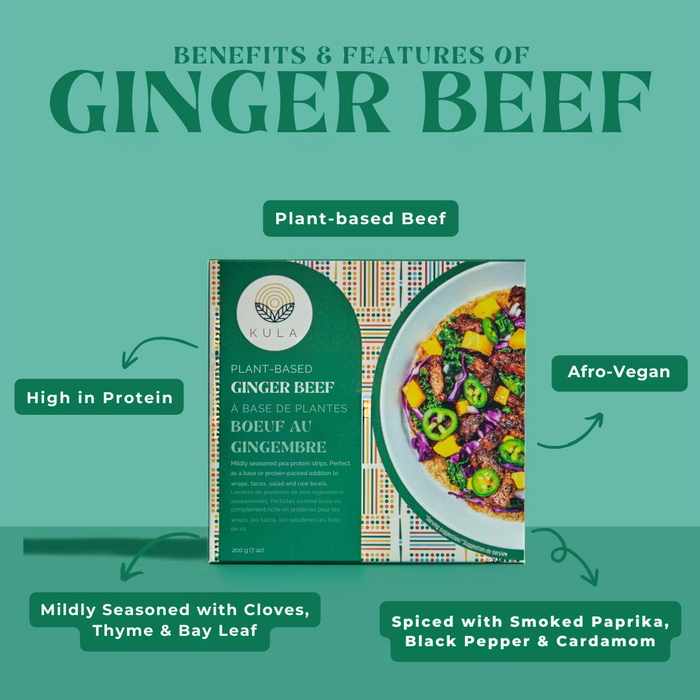7 Flavor-Packed BBQ Sauces That Are Perfect for Meatless Grilling
Everything About Healthy And Balanced Food: Benefits of Checking Out Plant Based Options
The discussion bordering plant-based diet plans has actually gained substantial focus in recent times. Several people are exploring the possible health and wellness advantages, dietary advantages, and environmental influences related to these dietary choices. As people become more knowledgeable about their food's influence on health and sustainability, inquiries arise regarding the functionalities of embracing such a way of life. What specific modifications can one expect, and exactly how might these options improve not just personal health and wellness however likewise the world's future?
Comprehending Plant-Based Diet Plans
Although many individuals connect plant-based diets mostly with vegetarianism or veganism, these diet regimens can incorporate a variety of consuming patterns that focus on entire, minimally refined plant foods. Such diet regimens typically consist of fruits, vegetables, whole grains, beans, nuts, and seeds, while eliminating or restricting animal products. This adaptability allows individuals to customize their dietary selections according to dietary requirements and individual choices. Some may take on a primarily plant-based diet while still occasionally consuming meat or dairy, typically referred to as a flexitarian approach. The focus continues to be on integrating more plant foods, which can cause a diverse selection of dishes and flavors. Comprehending these various interpretations of plant-based consuming is important for appreciating its accessibility and appeal in contemporary food culture.
Wellness Conveniences of Plant-Based Foods
The health and wellness benefits of plant-based foods are significant, providing a nutrient thickness benefit that supports general health. Research suggests that these foods can boost heart health and play an important duty in reliable weight monitoring. By including more plant-based options, individuals might improve their dietary selections and advertise long-lasting health.
Nutrient Thickness Advantage
Nutrient thickness plays a crucial role in the health benefits of plant-based foods, making them an engaging selection for those seeking a balanced diet plan. Plant-based foods, such as fruits, veggies, vegetables, nuts, and entire grains, are usually rich in necessary vitamins, minerals, and anti-oxidants while being reduced in calories. This high nutrient thickness permits people to eat less calories while still satisfying their nutritional requirements. In addition, these foods are loaded with dietary fiber, advertising digestive health and aiding in weight management. By including nutrient-dense plant-based alternatives, consumers can enhance their general health, support their immune systems, and lower the danger of chronic diseases. Inevitably, the nutrient density of plant-based foods emphasizes their value in a health-conscious way of life.
Heart Health Improvement

Weight Monitoring Support
Along with advertising heart health and wellness, a plant-based diet can considerably aid in weight monitoring. This dietary approach highlights entire foods such as fruits, vegetables, legumes, nuts, and whole grains, which are generally lower in calories and higher in fiber compared to animal-based items. The high fiber web content helps increase satiety, minimizing overall calorie consumption. Plant-based diets are usually abundant in essential nutrients while low in harmful fats, making it easier to keep a healthy weight. Study suggests that people that adopt a plant-based lifestyle tend to have reduced body mass indexes (BMIs) and experience even more successful weight reduction compared to those that consume meat-heavy diet plans. As a result, welcoming plant-based choices is a tactical choice for efficient weight management
Nutritional Worth of Plant-Based Components
Plant-based ingredients are abundant in crucial nutrients, offering a diverse variety of vitamins, minerals, and anti-oxidants that add to general wellness. A contrast of protein sources discloses that while animal items are usually viewed as exceptional, many plant-based choices offer appropriate protein and other helpful substances. Comprehending the nutritional worth of these components can assist people make informed dietary choices.
Crucial Nutrients in Plants
Nutrient-rich components found in plants provide a varied array of essential minerals and vitamins that add significantly to overall health and wellness. These components are abundant in vitamins A, C, and K, which support immune function, vision, and blood clot, specifically. On top of that, plants provide crucial minerals such as potassium, magnesium, and calcium, critical for heart wellness, muscle mass function, and bone stamina. The existence of fiber in plant-based foods aids digestion and advertises a healthy intestine microbiome. Anti-oxidants, located perfectly in fruits and vegetables, assistance battle oxidative stress and decrease inflammation. Several plant foods are low in calories yet high in nutrients, making them a superb selection for those seeking to preserve a healthy weight while making sure optimal nutrient intake.

Contrasting Healthy Protein Resources
Protein resources vary substantially in their more tips here nutritional accounts, with plant-based active ingredients supplying distinct benefits. Unlike pet proteins, which typically consist of hydrogenated fats and cholesterol, plant proteins tend to be lower in these harmful elements. Legumes, nuts, seeds, and entire grains are rich in necessary amino acids, fiber, vitamins, and minerals. For instance, lentils offer high healthy protein content together with considerable iron and folate, while quinoa is a full healthy protein, providing all 9 vital amino acids. Additionally, plant-based healthy proteins are typically accompanied by antioxidants and phytochemicals that sustain overall health and wellness. The change to plant-based healthy protein sources not only boosts nutritional intake yet also lines up with lasting dietary practices, decreasing ecological impact and advertising lasting health benefits.
Environmental Influence of Plant-Based Eating
As awareness of climate adjustment grows, lots of people are exploring sustainable nutritional selections that can greatly minimize their ecological impact. Plant-based eating has actually emerged as a considerable factor to decreasing greenhouse gas discharges, which are mainly connected with animals manufacturing. The farming of fruits, veggies, legumes, and BBQ Sauces grains generally calls for fewer resources, such as water and land, contrasted to pet farming. In addition, plant-based diets can bring about decreased logging, as less land is required for grazing livestock or expanding pet feed. By shifting towards plant-based alternatives, customers can support biodiversity and promote much healthier communities. Generally, accepting plant-based consuming not just advantages individual health and wellness yet also represents an essential step towards ecological sustainability and preservation initiatives.
Overcoming Common Misconceptions
While several people acknowledge the benefits of a plant-based diet, several misconceptions often hinder them from totally welcoming this way of life. A common belief is that plant-based diets do not have sufficient protein; nevertheless, many plant sources, such as beans, nuts, and tofu, give adequate protein. Additionally, some think that this diet regimen is costly, when as a matter of fact, staples like beans, rice, and seasonal veggies can be quite economical. An additional mistaken belief is that plant-based consuming is extremely limiting, whereas it really supplies a diverse selection of foods and flavors. Finally, several stress that a plant-based diet might bring about shortages, yet with appropriate planning, people can get all needed nutrients, consisting of vitamins and minerals, while enjoying a wide range of scrumptious dishes.
Tips for Transitioning to a Plant-Based Lifestyle
Making the shift to a plant-based way of life can be an enhancing experience, though it commonly calls for some advice to browse the first adjustments. People are motivated to start gradually, including even more fruits, vegetables, vegetables, and entire grains into their dishes while decreasing meat and dairy products consumption. Dish planning is essential; preparing a regular menu can aid alleviate the change and avoid last-minute harmful selections. Discovering brand-new dishes and cooking methods can also keep and boost the experience enjoyment regarding plant-based consuming. Furthermore, joining support system or areas can supply motivation and share important suggestions. Staying informed about nutrition assurances well balanced meals, protecting against shortages while fostering a healthy and balanced, satisfying plant-based way of living.

Delicious Plant-Based Dish Concepts
Checking out delicious plant-based meal concepts can influence individuals to welcome a more nutritious diet. One popular choice is a passionate quinoa salad, featuring cherry tomatoes, cucumber, and a spicy lemon-tahini clothing. One more fave is a mouthwatering lentil stew, loaded with carrots, celery, and fragrant natural herbs, perfect for a calming dinner. For breakfast, over night oats made with almond milk, chia seeds, and topped with fresh berries provide a nourishing start to the day. Additionally, a vibrant vegetable stir-fry with tofu and a selection of colorful veggies can be a quick yet satisfying meal. Velvety avocado toast on whole-grain that site bread, sprinkled with seasonings and seeds, uses a simple yet savory treat. These dishes display the variety and richness of plant-based consuming.

Frequently Asked Questions
Can a Plant-Based Diet Give Enough Healthy Protein?
The question of whether a plant-based diet can provide sufficient protein is typical. Numerous resources, including vegetables, nuts, seeds, and whole grains, can satisfy healthy protein needs properly, supporting a well balanced and healthy diet regimen for individuals.
Are Plant-Based Diet Plans Suitable for Kid?
The suitability of plant-based diet plans for youngsters depends on mindful planning. Sufficient nutrients must be assured, including vitamins, proteins, and minerals. With appropriate advice, such diets can sustain healthy development and advancement in children.
Just how Do I Eat in restaurants on a Plant-Based Diet plan?
Dining out on a plant-based diet involves looking for restaurants with varied menus, requesting modifications, and exploring vegan-friendly alternatives. Planning in advance and communicating nutritional preferences can improve the eating experience while keeping dietary options.
What Prevail Irritants in Plant-Based Foods?
Common allergens in plant-based foods include soy, gluten, nuts, and seeds - Sugar Free Sauces. People adhering to a plant-based diet plan should understand these irritants and review tags thoroughly to prevent negative reactions and ensure secure usage
Can Plant-Based Diets Assist With Weight Loss?
Research study suggests that taking on a plant-based diet plan might assist in weight-loss because of its typically reduced calorie density and higher fiber material. This mix can improve satiation, assisting people handle their caloric consumption effectively. Many individuals connect plant-based diet plans mainly with vegetarianism or veganism, these diet regimens can incorporate a vast variety of eating patterns that focus on whole, minimally processed plant foods. Nutrient thickness plays a necessary function in the health and wellness benefits of plant-based foods, making them an engaging choice for those seeking a balanced diet. Plant-based diet regimens have actually been revealed to substantially enhance heart wellness, as they commonly have components that sustain cardiovascular function. In enhancement to advertising heart health, a plant-based diet regimen can considerably help in weight management. A common idea is that plant-based diets lack sufficient protein; however, countless plant sources, such as legumes, nuts, and tofu, supply ample protein.